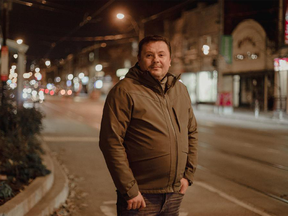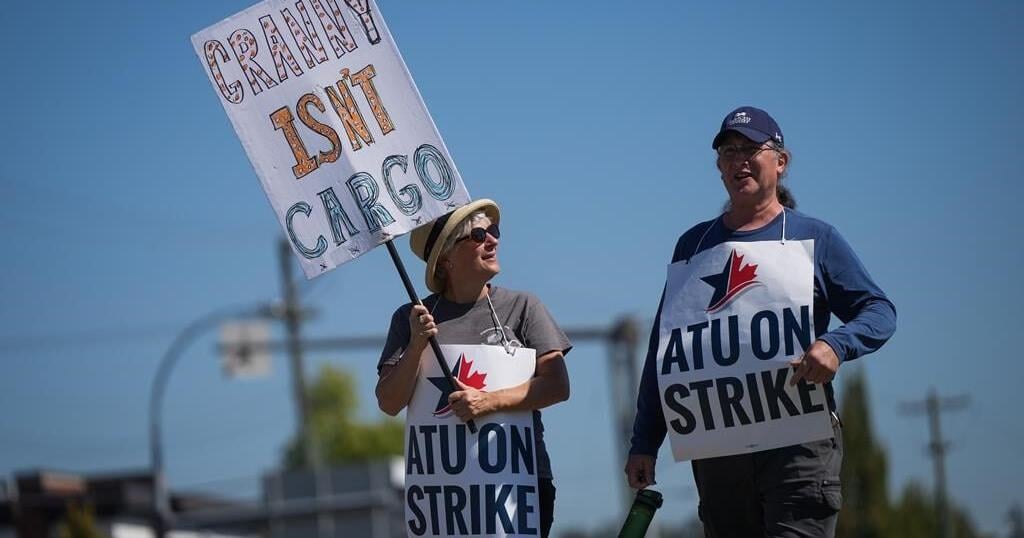CALGARY – Mired in their first four-game losing skid in 20 years, the Calgary Stampeders are going back to Jake Maier at quarterback on Saturday after he was benched for a game.
It won’t be an easy assignment.
Visiting McMahon Stadium are the Eastern Conference-leading Montreal Alouettes (10-2) who own the CFL’s best record. The Stampeders (4-8) have fallen to last in the Western Conference.
“Six games is plenty of time, but also it is just six games,” said Maier. “We’ve got to be able to get on the right track.”
Calgary is in danger of missing the playoffs for the first time since 2004.
“I do still believe in this team,” said Stampeders’ head coach and general manager Dave Dickenson. “I want to see improvement, though. I want to see guys on a weekly basis elevating their game, and we haven’t been doing that.”
Maier is one of the guys under the microscope. Two weeks ago, the second-year starter threw four interceptions in a 35-20 home loss to the Edmonton Elks.
After his replacement, rookie Logan Bonner, threw five picks in last week’s 37-16 loss to the Elks in Edmonton, the football is back in Maier’s hands.
“Any time you fail or something doesn’t go your way in life, does it stink in the moment? Yeah. But then the days go on and you learn things about yourself and you learn how to prepare a little bit better,” said Maier. “It makes you mentally tougher.”
Dickenson wants to see his quarterback making better decisions with the football.
“Things are going to happen, interceptions will happen, but try to take calculated risks, rather than just putting the ball up there and hoping that we catch it,” said Dickenson.
A former quarterback himself, he knows the importance of that vital position.
“You cannot win without good quarterback play,” Dickenson said. “You’ve got to be able to make some plays — off-schedule plays, move-around plays, plays that break down, plays that aren’t designed perfectly, but somehow you found the right guy, and then those big throws where you’re taking that hit.”
But it’s going to take a team effort, and that includes the club’s receiving corp.
“We always have to band together because we need everything to go right for our receivers to get the ball,” said Nik Lewis, the Stampeders’ receivers coach. “The running back has to pick up the blitz, the o-line has to block, the quarterback has to make the right reads, and then give us a catchable ball.”
Lewis brings a unique perspective to this season’s frustrations as he was a 22-year-old rookie in Calgary in 2004 when the Stamps went 4-14 under coach Matt Dunigan. They turned it around the next season and haven’t missed the playoffs since.”
“Thinking back and just looking at it, there’s just got to be an ultimate belief that you can get it done. Look at Montreal, they were 6-7 last year and they’ve gone 18-2 since then,” said Lewis.
Montreal is also looking to rebound from a 37-23 loss to the B.C. Lions last week. But for head coach Jason Maas, he says his team’s mindset doesn’t change, regardless of what happened the previous week.
“Last year when we went through a four-game losing streak, you couldn’t tell if we were on a four-game winning streak or a four-game losing streak by the way the guys were in the building, the way we prepared, the type of work ethic we have,” said Maas. “All our standards are set, so that’s all we focus on.”
While they may have already clinched a playoff spot, Alouettes’ quarterback Cody Fajardo says this closing stretch remains critical because they want to finish the season strong, just like last year when they won their final five regular-season games before ultimately winning the Grey Cup.
“It doesn’t matter about what you do at the beginning of the year,” said Fajardo. “All that matters is how you end the year and how well you’re playing going into the playoffs so that’s what these games are about.”
The Alouettes’ are kicking off a three-game road stretch, one Fajardo looks forward to.
“You understand what kind of team you have when you play on the road because it’s us versus the world mentality and you can feel everybody against you,” said Fajardo. “Plus, I always tend to find more joy in silencing thousands of people than bringing thousands of people to their feet.”
This report by The Canadian Press was first published Sept. 13, 2024.



























